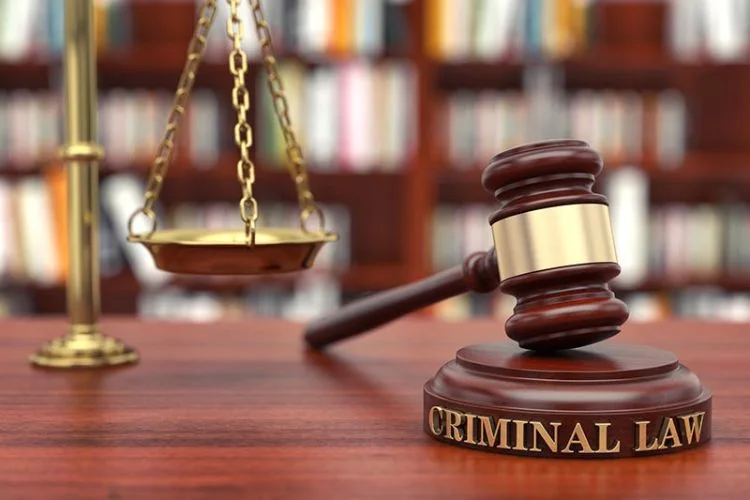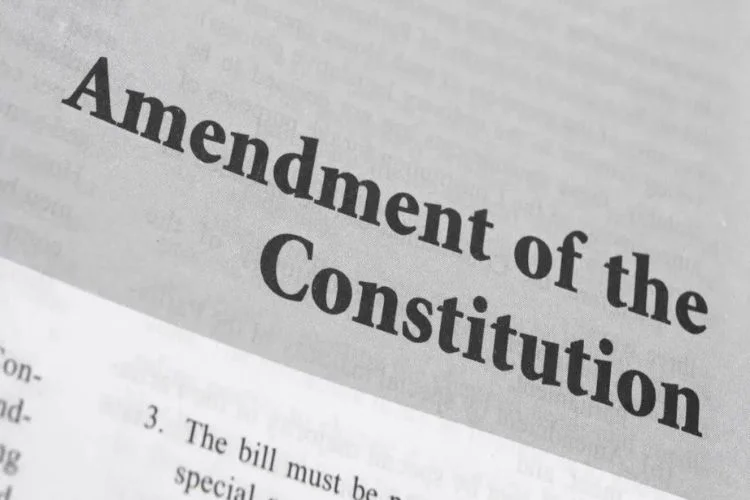There are many types of criminal lawyers to meet the demands of different kinds of clients. However, criminal lawyers usually fall into either one of two categories: Defense or Prosecution.
Criminal defense attorneys work closely with expert witnesses (including forensic analysts) to develop a sound case for acquittal. Most criminal defense attorneys practice privately but some choose to offer their services through public defenders or state/government offices. A criminal law firm usually consists of several members that share responsibilities such as client intake, case management, communication with police detectives, and filing discovery motions.
A criminal defense attorney represents defendants in court during their trial proceedings and/or negotiates plea bargains with prosecutors on behalf of his/her clients. Criminal defense attorneys may also negotiate with prosecutors to reduce charges for their clients, arrange bail for the defendant’s release from custody pending trial, recommend appropriate sentences when an agreeable plea deal has been reached, give legal advice to defendants, and represent them at their trials.
Criminal defense attorneys are sometimes referred to as “trial lawyers” because of the requirement that they try or contest cases in court. Criminal defense attorneys must have an intimate understanding of criminal law, legal procedures, trial practice, constitutional rights, and evidentiary rules if they are to provide competent representation for their clients.
Is a prosecutor a type of criminal lawyer?
Prosecutors are the pillars of the criminal justice system. They pursue convictions for crimes committed in their jurisdictions and work to ensure that justice is served on behalf of victims and society. Prosecutors have three main functions: investigating criminal conduct, prosecution, and supervision. First, they investigate suspected crimes by gathering evidence, interviewing witnesses, or directing law enforcement officers to do so. Second, they prosecute criminal suspects in court by presenting evidence of guilt to trial juries or judges through an adversarial process. Finally, they supervise convicted defendants’ punishment or rehabilitation by recommending sentences within federal or state guidelines or negotiating plea agreements between defendants and the courts.
Aside from prosecuting people accused of committing federal crimes, a prosecutor’s job includes:
- Investigating criminal matters and deciding whether to bring criminal charges for criminal conduct. Prosecutors review police reports, interview witnesses, and gather evidence such as fingerprints or DNA samples that may prove that someone is responsible for a crime. They also take part in raids, arrests, and other law enforcement activities. After considering the facts of a case, prosecutors decide whether it should be taken to court. If so, they try the case and argue their version of events in front of a judge and jury.
- Recommending typical charges for convicted criminals under state or federal law. Federal prosecutors will recommend sentences within federal guidelines for those who plead guilty before trial; if they go to trial and lose, judges often follow these recommendations when imposing penalties on defendants. State prosecutors can recommend prison or jail time for convicted defendants; however, many state courts do not have the same sentencing guidelines as federal courts and will instead look to past cases in their own jurisdiction. Prosecutors may also be able to recommend people be sent to drug or alcohol rehabilitation programs rather than serve jail time. A prosecutor will usually only agree not to oppose parole if a defendant cooperates with authorities and pleads guilty.
- Negotiating plea bargains with defense attorneys. In most cases, prosecutors and defense lawyers negotiate plea agreements that save both sides time and money. Plea agreements often involve serious criminals pleading guilty in exchange for leniencies such as reduced charges or lighter sentencing. However, they may also involve defendants admitting guilt without formally pleading, or in cases where defendants plead guilty but still deny culpability.
- Enforcing laws that protect the public. Prosecutors represent the state in civil and criminal cases, often representing government agencies or government bodies, such as schools, town councils, or mayors’ offices in high-profile lawsuits. They also work to ensure all citizens have access to equal education, housing, and employment opportunities through the enforcement of anti-discrimination laws.

What is a Criminal Lawyer?
There is an important distinction between a criminal defense attorney and a criminal defence lawyer. The former is responsible for defending the accused in a court of law. As his or her client, they are entitled to the same protection under the law as anyone who might be charged with a crime. A lawyer, on the other hand, works outside of this legal system to repair reputations damaged by accusations of wrongdoing. In general, they do not have to meet the same standards as a defense attorney. Similarly, they don’t have to defend their client as rigorously since their work typically focuses on rescuing someone’s career rather than preserving their physical freedom from incarceration.
Typically, a client will seek out a criminal defence lawyer when they believe their professional and personal life is in jeopardy. Since the accusations in question are typically one-sided, this means that someone has reported them to management or authorities. The job of the defense lawyer is to dispute these claims with additional evidence or testimony from witnesses who can vouch for their client’s character and behavior. This work often involves interviewing former employers and co-workers as well as combing through past projects looking for suspicious material or behavior that might suggest malicious intent or unprofessional conduct. It is not unheard of for private investigators to play a role here, but it is more common for lawyers who specialize in reputation restoration services to handle witness interviews themselves using public records and internet searches
Criminal defense lawyers represent individuals by giving advice to clients, companies, and other organizations that are accused of committing a crime or crimes. They defend those accused of crimes in all manner of legal proceedings including trials, hearings, and appeals, as well as alternative dispute resolution procedures such as arbitration and mediation. Criminal defense (also commonly referred to as criminal lawyer) lawyers also advise clients about
Some areas that are considered the core aspects of criminal defense work include:
- Counseling defendants about their constitutional rights, legal rights, or basic rights. Such as the right against self-incrimination and to counsel. Representation of a defendant in courts at all levels from arraignment through trial and post-conviction proceedings, if necessary. Negotiation with the prosecutor for a reduction or dismissal of charges. Investigation of facts and criminal matters involved in a case.
- Advice as to a defendant’s legal options and preparation of motions for discovery, suppression of evidence, change of venue, continuance where appropriate. Legal research on proposed defenses. Trial presentation either by way of opening statement or argument to the jury or judge. Generally, only the final argument may be made orally to the trier-of-fact (judge, jury). The argument of motions after the close of evidence. Assistance during sentencing or parole hearings.
What happens if you can’t afford a lawyer?
If you can’t afford a lawyer, you may feel as though the odds are stacked against you and your legal matter will never be won. However, this doesn’t have to be the case! It’s important to know that there are free and low-cost legal alternatives available in many areas of law. Legal aid societies and non-profit clinics often provide quality legal assistance at an affordable price so anyone who is struggling financially.
In addition to criminal defense lawyers, there are public defenders, or court-appointed attorneys, who represent the majority of individuals accused of a crime for free or at an extremely reduced fee. Public defenders are usually assigned to defend those charged with serious crimes and often work in the appellate division where they handle convicted persons’ attempts to reverse their convictions or sentences through the court system. Other duties include negotiating plea agreements and representing clients at pretrial hearings. However, there is no guarantee they will be selected by the court as the public defender for an individual’s case.
What are the education requirements for a career in law?
To be admitted to law school in Canada, students must first obtain a four-year bachelor’s degree level of education. As there are no pre-law undergraduate degrees offered in Canada, students usually enroll at university for this degree directly after high school without any previous post-secondary education or entry-level education. Although there are some universities that offer specific three-year degrees allowing students to fast track their way into law school (i.e., the University of Calgary’s “3+3” program), completing an undergraduate degree before law school is considered the standard admission route. Some students may opt for an honours Bachelor of Arts or Science, while others prefer to study a specific subject area such as political science, history, philosophy, and languages (French and English). This decision reflects many students’ desire to apply for law school immediately after completing their undergraduate degree.
Criminal Lawyer and Civil Lawyer. What’s the difference?
A civil rights attorney is a lawyer who specializes in matters of civil law. Their area of expertise is defending individuals’ constitutional and legal rights as they pertain to matters such as discrimination, wrongful termination, abuse, etc. In this capacity, civil rights attorneys can also be known as personal injury lawyers, although there are many differences between the two types of representation. Criminal defense attorneys will also handle both civil and criminal cases. A civil case is a dispute between two parties in which one person, business, or organization is accusing another person, business, or organization of doing something wrong. A criminal lawyer is the one who defends the accused party against accusations of crimes. Their job is to protect their clients’ rights under the law.
We are Always Available to Help You
The best thing you can do to protect yourself from criminal charges in Cochrane is hiring a criminal defense lawyer for your case!
Our team of lawyers only focus on criminal law and provide the best possible service available for those facing a wide variety of charges including: domestic violence, trafficking, manslaughter, impaired driving, theft, fraud and sex crimes.



